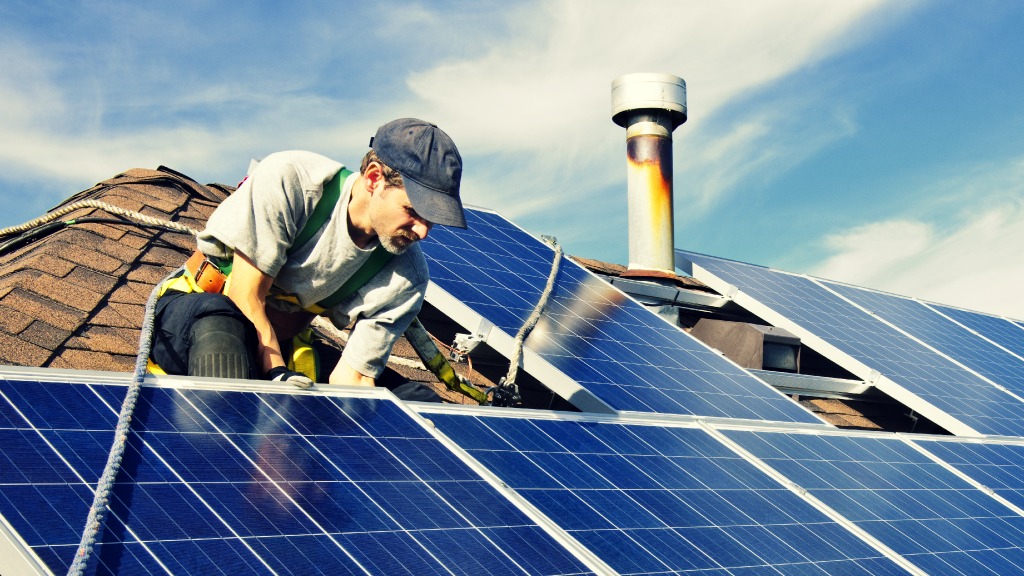It is a question for the ages: How does one go about making solar panels seem fun instead of just noble? This weekend’s national celebration of all things solar, which goes by the very Portlandia name of “Put Solar on It,” answers that question: in a way that is both dweeby and endearing.
On Saturday, June 21, the longest day of the year, Put Solar on It events will take place in cities and towns around the U.S. (you might be able to find one here or here). Some involve tours of local solar installations, others will have solar-related presentations and talks. If you can’t make it to one, you can still play along at home by voting for your favorite solar installation (50 votes = $100 donated to a project).
The campaign is being put on by more than a dozen organizations, including Al Gore’s Climate Reality Project and Organizing for Action, which is run by the organizers of Obama’s reelection campaign. But “Put Solar on It” has its origins with the solar investment company Mosaic, which brainstormed the phrase back in December. “It made a good hashtag,” said Katie Ullman, the company’s communications manager.
The phrase was used to kick off a year of solar-related events, beginning with a New Year’s resolution campaign that involved the Oscar-nominated actor Mark Ruffalo (who also happens to have been the winner of Grist’s fruit-basket challenge). Ruffalo told Fox Business that he got involved with solar efforts because he wanted to support cleaner alternatives even as he fights fracking in upstate New York. Solar, he said, “appealed to his sense of democracy” — every American should be able to gather and sell their own electricity.
Mosaic is an interesting startup in the land of solar. It describes itself, alternately, as a “peer-to-peer investment firm” and “part Kickstarter, part bank, part Change.org.” Like solar leasing programs, it allows people to install solar without having to pay a significant amount upfront. Unlike solar leasing, the people who’ve installed the panels will be able to claim the tax credit for having them, and ultimately own them, once they’ve paid off the loan. Individuals can also invest in small-scale solar projects through Mosaic; the company claims to give returns of 4.5 to 7 percent.
Rooftop solar and other distributed clean energy technologies have the potential to, as Grist’s David Roberts once put it, “lay waste to U.S. power utilities and burn the utility business model, which has remained virtually unchanged for a century, to the ground.” Right now solar still provides less than 1 percent of U.S. electricity, but it’s enough of a threat that it caused Barclays to downgrade its rating for the electric sector last month.
In the midst of so much climate doom and gloom, the excitement building around Mosaic and other solar companies is a welcome change of pace — and a perfect cause for celebration on the summer solstice.



